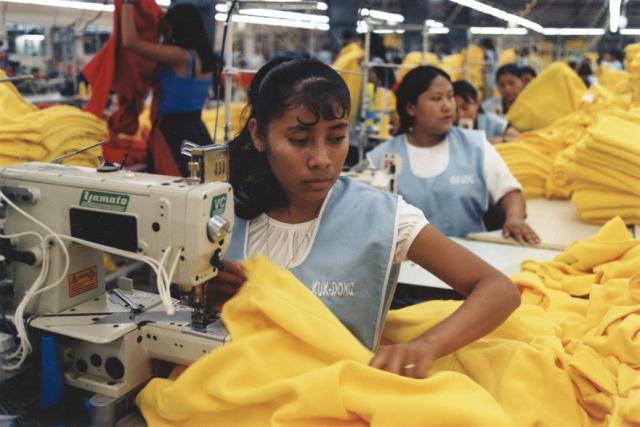
One could say that the low wage rates inherent within the Global South, coupled with the lure of foreign markets, have and continue to attract Foreign Direct Investment (FDI) – a category of cross-border investment whereby an investor in one economy establishes an interest and a degree of influence over an enterprise resident in an alternative economy.
While the forces of globalisation have delivered the bulk of FDI to the Global South via multinational corporations (MNCs) in what is now labelled as the ‘globalisation of production’, it remains a matter of dispute as to whether FDI benefits less developed countries. Those, maintaining the radical perspective, argue that FDI through MNCs is actually an imperialist tool of the West intending to exploit host countries. Many firms have now relocated their production to East Asia in pursuit of cheap labour and lenient regulations while simultaneously displacing local companies. The reality is that these Western MNCs intend to maintain a highly flexible workforce without formal contracts and keep wages low, with the ulterior motive of ensuring workers remain disposable, extracting surplus value from these cheap labour repositories, and transferring it back to the core. In fact, the uncovering of so-called ‘sweatshops’ evidences the hub of exploitation linked to MNCs by capitalising on a workforce of third-world workers, as well as facilitating abysmal working conditions, with the sole objective of maximising profit.
Although such an argument persists, some indeed argue that the extent to which MNCs are actually exploitative within the Global South is a contested debate and thus claim that sweatshop labour provides a viable employment alternative for those in the Global South, helping them escape poverty and achieve gradual economic prosperity in the country. However, one cannot ignore the brutal sweatshop conditions Global South workers experience, highlighted by the collapse of the Rana Plaza factory, which produced for MNCs including Nike and Apple, resulting in the deaths of over 1,000 people. As such, while these MNCs extract value, the poor suffer the consequences.
Against the negative backdrop of FDI being viewed as an instrument for exploitation, one should acknowledge the positive advances stemming from FDI. For these developing nations, FDI is a source of external capital that creates a platform for increased revenue, which is crucial for economic development. As such, the Monterrey Consensus of 2002 articulated that ‘Private international capital flows, particularly foreign direct investment, along with international financial stability, are vital complements to national and international development efforts’. Therefore, the perspective that FDI is a positive tool exists, asserting that it spurs economic growth since it delivers host economies special resources, including technology, capital, and management know-how. As an example, the role of China’s FDI in Africa has led some to conclude that FDI is indeed a catalyst for the development of these host countries, as it increases manufacturing capacity, which stimulates local industrialisation, in addition to increasing exports owing to the comparative advantages in natural resources and labour-intensive manufacturing activities. This can increase domestic industries’ competitiveness, with the presence of MNCs also motivating domestic firms to meet the demands of global value chains by improving their internal standards and practices, thus benefiting the broader economy.
Ultimately, we find that the debate concerning foreign direct investment as a driver for development or a tool for exploitation in the Global South is complex. Therefore, it is problematic to apply one label to generalise its outcome. Despite this, one would say we must not turn a blind eye to the fact that while FDI does enable Global South nations to accrue benefits, the truth is that many individuals within these societies are left to be exploited through the hazardous conditions of work while receiving very low wages, with MNCs taking advantage of their desperate circumstances.
Image: Sweatshops Across the World by Marissa Orton, 23.07.2008 // CC BY-SA 2.0 DEED



Average Rating